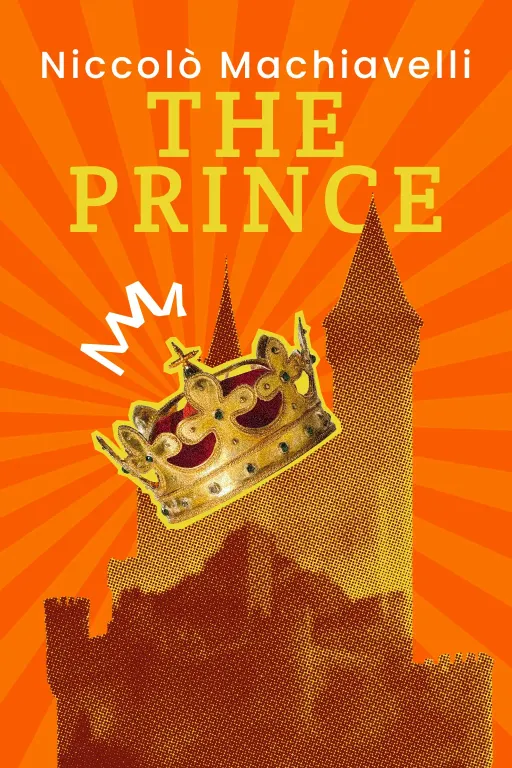
The Prince
Politics
Niccolò Machiavelli
Niccolò Machiavelli's The Prince stands as a seminal work within the pantheon of political philosophy, an astute examination of power that remains startlingly relevant across epochs. Crafted in the turbulent socio-political milieu of Renaissance Italy, a period characterized by fragmentation and external domination, the text serves both as an analytical guide for rulers and as a reflective commentary on the profoundly complex and often paradoxical nature of governance.
At its core, The Prince delineates the formidable terrain of statecraft, offering deliberative insights into the varied modalities through which authority can be acquired, maintained, and consolidated. Machiavelli proposes that the path to effective leadership necessitates an amalgamation of adaptability, cunning, and a delicate equilibrium between cruelty and clemency. Drawing from the historical narratives of imperious figures such as Cesare Borgia and Alexander the Great, he infuses his treatise with empirical observations that elucidate the multifaceted characteristics of political dominion. His keen analysis underscores the notion that fortune and virtue are inextricably intertwined, each playing a critical role in shaping the fortunes of rulers. As he astutely observes, "It is better to be feared than loved," emphasizing the pragmatic realities that often govern the dynamics of loyalty, obedience, and interpersonal relations within the realm of governance.
Machiavelli's exploration of the various types of principalities presents a nuanced understanding of the political landscape. Hereditary principalities invoke themes of stability and entrenched loyalty, while new and mixed principalities expose the difficulties inherent in integrating disparate populations into a cohesive state. Each category, underscored by historical precedents, reveals the challenges that may arise from cultural dissonance and the necessity for rulers to cultivate legitimacy and allegiance among their subjects. This discourse extends into the realm of military strategy, where Machiavelli ardently advocates for the ascendance of citizen armies over mercenaries, heralding the former's intrinsic motivations as paramount to loyalty and national cohesion.
Yet, beyond mere practical advisements, The Prince prompts profound ethical interrogations regarding the essence of leadership. As Machiavelli proffers his uncivil suggestions, he grapples with the persistent tension between moral righteousness and pragmatic necessity, encouraging leaders to eschew idealism when bounded by the harsh realities of human nature. He paints a stark picture of humanity as ungrateful, fickle, and covetous, advocating that effective governance often necessitates an embracing of morally ambiguous choices. This candid approach has rendered Machiavelli both revered and reviled, propelling his work into the realms of scholarly debate and dispassionate analysis.
The concluding reflections within The Prince compel readers to consider the long shadows cast by historical precedents, sparking inquiries into the dichotomies of power, ethics, and leadership. Machiavelli’s musings on the interplay between personal ambition and the inexorable forces of fate resonate as enduring lessons, cautioning contemporary leaders to navigate the complex waters of political maneuvering with an astute understanding of both their constituents and their own limitations.
In summation, The Prince encapsulates the quintessence of Machiavelli's political philosophy—a piercing exploration into the nature of power that transcends its historical context to challenge the moral frameworks that govern contemporary governance. It offers neither definitive prescriptions nor utopian visions; rather, it serves as a mirror reflecting the perennial quandaries of authority, ambition, and human conduct that continue to vex leaders and scholars alike in their quests for understanding the intricate dance of statecraft.










